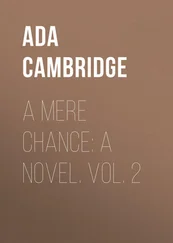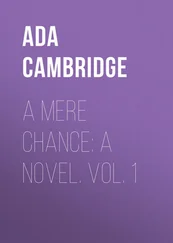Ada Cambridge - Thirty Years in Australia
Здесь есть возможность читать онлайн «Ada Cambridge - Thirty Years in Australia» — ознакомительный отрывок электронной книги совершенно бесплатно, а после прочтения отрывка купить полную версию. В некоторых случаях можно слушать аудио, скачать через торрент в формате fb2 и присутствует краткое содержание. ISBN: , Жанр: foreign_antique, foreign_prose, на английском языке. Описание произведения, (предисловие) а так же отзывы посетителей доступны на портале библиотеки ЛибКат.
- Название:Thirty Years in Australia
- Автор:
- Жанр:
- Год:неизвестен
- ISBN:http://www.gutenberg.org/ebooks/37825
- Рейтинг книги:5 / 5. Голосов: 1
-
Избранное:Добавить в избранное
- Отзывы:
-
Ваша оценка:
- 100
- 1
- 2
- 3
- 4
- 5
Thirty Years in Australia: краткое содержание, описание и аннотация
Предлагаем к чтению аннотацию, описание, краткое содержание или предисловие (зависит от того, что написал сам автор книги «Thirty Years in Australia»). Если вы не нашли необходимую информацию о книге — напишите в комментариях, мы постараемся отыскать её.
Thirty Years in Australia — читать онлайн ознакомительный отрывок
Ниже представлен текст книги, разбитый по страницам. Система сохранения места последней прочитанной страницы, позволяет с удобством читать онлайн бесплатно книгу «Thirty Years in Australia», без необходимости каждый раз заново искать на чём Вы остановились. Поставьте закладку, и сможете в любой момент перейти на страницу, на которой закончили чтение.
Интервал:
Закладка:
Thirty Years in Australia
CHAPTER I
"ISLE OF BEAUTY, FARE THEE WELL!"
I knew nothing whatever of Australia when I rashly consented to marry a young man who had irrevocably bound himself to go and live there, and, moreover, to go within three months of the day on which the wild idea occurred to me. During the seven weeks or thereabouts of a bewildering engagement, the while I got together my modest trousseau, we hunted for information in local libraries, and from more or less instructed friends. The books were mostly old ones, the tales the same. Geoffrey Hamlyn was my sheet anchor, but did not seem to be supported by the scraps of prosaic history obtainable; we could not verify those charming homes and social customs. On the other hand, cannibal blacks and convict bushrangers appeared to be grim facts. As for the physical characteristics of the country, there were but the scentless flowers, the songless birds, the cherries with their stones outside (none of which, actually, is the rule, and I have found nothing to resemble the description of the latter), and the kangaroo that carries its family in a breast-pocket, which we felt able to take for granted. These things we did believe in, because all our authorities mentioned them. G. had a letter from a college friend who had preceded him to Australia, reporting the place not wild at all, but quite like home. He instanced an episcopal dinner-party that he had attended, and a church dignitary's "three sweetly pretty daughters," who had come in the evening, and with whom he had sung duets. But at time of writing he had got no further than Melbourne – knew no more than we of the mysterious Bush, which I thought of as a vast shrubbery, with occasional spears hurtling through it. When we had assimilated all the information available, our theory of the life before us was still shapeless. However, we were young and trusting, and prepared to take things as they came.
G. was an English curate for a few weeks, and an English rector for a few more. It was just enough to give us an everlasting regret that the conditions could not have remained permanent. Doubtless, if we had settled in an English parish, we should have bewailed our narrow lot, should have had everlasting regrets for missing the chance of breaking away into the wide world; but since we did exile ourselves, and could not help it, we have been homesick practically all the time – good as Australia has been to us. At any moment of these thirty odd years we would have made for our native land like homing pigeons, could we have found the means; it was only the lack of the necessary "sinews" that prevented us. Such a severe form of nostalgia is, however, uncommon here, and would be cured, I am told, by a twelve months' trip. Certainly, in nine cases out of ten, where I have known the remedy tried, it has seemed infallible. The home-goers come back perfectly satisfied to come back. It is when they stay at home for more than twelve months that they want to stay altogether.
G.'s brief curacy synchronised with our brief engagement. I was a district visitor in the parish which he served, and in which he was born. He became a rector on the wedding day. The charming rectory was placed at our disposal for the honeymoon by the real incumbent, our mutual friend, he and his good wife taking the opportunity to pay visits until we had done with it. We drove thither in the afternoon, and heard the bells ringing as we entered the village, and found the rectory-gate set wide and the white-satin-ribboned maids awaiting us on the doorstep of the beflowered house. We had two maids and a man servant; we had a brougham; we had a tiny hamlet of a parish in which (compared with what we have known of parishes) there was nothing to do – two services on Sunday, and a little business of coal and clothing clubs during the week – and where our parishioners dropped curtseys to us on the road, and felt honoured beyond measure when we went to see them. No wonder that, under the too totally opposite circumstances of clerical life as we have lived it here, we have looked back to that haven of dignified peace and ease with the wish – the stupid wish – that we could have had it always.
Nothing could have suited us better while we did have it. We were but four miles from our homes, and could see our people, who were to lose us in a month, while still ostensibly in bridal seclusion. A sister from whom I was separated for the whole of the thirty years, but who is with me now, to gossip, as we are always doing, of those old days, used to walk out before breakfast. We would have a quiet sewing morning, getting forward with the preparations still so far from completed; then we would perhaps drive her home in the afternoon, and get an hour with my mother, who surpassed all the mothers I ever knew in her unselfish passion for her children, and for whom my heart bleeds to this day when I think of what my going cost her – for I know more of mothers' sufferings in that way than I did then. She would be working her dear fingers to the bone over something to add to the array of zinc-lined boxes which were being fed by instalments in my deserted room, and I see now the flash of tearful joy that lit her fair, fine-featured face when I came with my poor crumb of comfort for her hungry heart. Intimate girl companions walked over to lunch or to play a game of croquet, or to make better use of the little time remaining to us; and we walked half-way back with them on the lonely road and through the leafy lanes. It was April and May, and, as far as I can remember, all fine weather – a last impression of English springtime that has lived with me like a beautiful portrait, an idealised portrait, of a dead and longed-for friend. "Oh to be in England now that April's there!" has been the yearly aspiration of my homesick soul, which takes no account of east winds and leaden skies, but only of chaffinches and apple boughs, just as Browning's did. My birds are the skylarks above those fen-meadows, and the flower I think of first my favourite lily-of-the-valley, of which I carried a great bunch, with the dew still on it, to the cathedral on my wedding-morning. And those golden May evenings, when we wandered back along the empty road, after setting our friends on their homeward way – I see them in some of Leader's pictures, which, if I were rich, I would buy to live with me, for that reason only. The friends could dine with us at the then usual hour, and still get home before the slow twilight passed into night – a thing impossible in this country. They were the last hours that we spent together – all young things then, but now grey and elderly, though I cannot realise it; three of them widows, most of them grandmothers, but never old to me, nor I to them. For more than thirty years we have not met, and there have been long gaps in our correspondence; but friendship has survived all, unchanged. They still write to ask when they are to see me, and I still write back to make provisional appointments which I can by no effort contrive to keep.
I was married on the 25th of April 1870. On the same date of the following month I left them all, never – as now seems only too probable – to return. We buoyed ourselves up through the anguish of the last farewells with a promise, made in all good faith, that I should come back in five years. My husband promised to bring me. "We must save up," we said to each other, "and have a holiday then." It was an easy thing to plan, but proved too difficult to carry out. After we became a family, going anywhere meant going as a family, and taking all the roots of its support and livelihood with it. Theoretically, I could have run home alone, if not in five years, in eight or ten – we could have afforded that – but practically it was as impossible as that we should all go, which we could never afford. So here we are still, and my poor mother, who lived to the last on the hope that we had given her, has long been in her grave. There is no trace of an English home to go back to now.
Читать дальшеИнтервал:
Закладка:
Похожие книги на «Thirty Years in Australia»
Представляем Вашему вниманию похожие книги на «Thirty Years in Australia» списком для выбора. Мы отобрали схожую по названию и смыслу литературу в надежде предоставить читателям больше вариантов отыскать новые, интересные, ещё непрочитанные произведения.
Обсуждение, отзывы о книге «Thirty Years in Australia» и просто собственные мнения читателей. Оставьте ваши комментарии, напишите, что Вы думаете о произведении, его смысле или главных героях. Укажите что конкретно понравилось, а что нет, и почему Вы так считаете.












